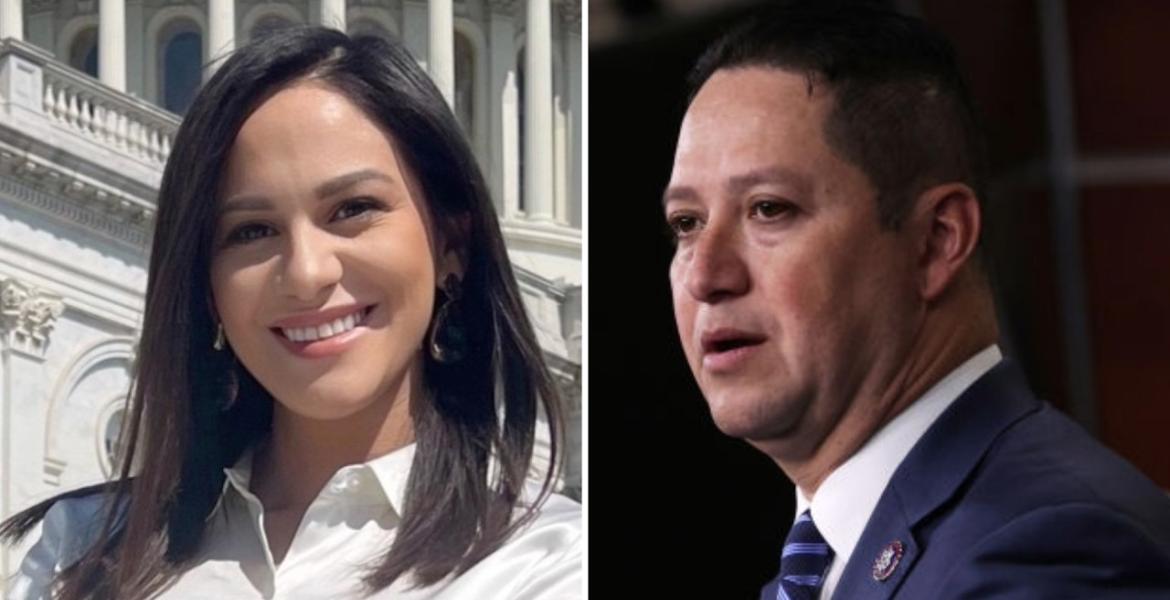No more texting on a cell phones while driving is one step closer to being a reality with full approval from City Council last week. However, one previous council member and mayoral candidate, Paul Alexander, said the city will be passing a law that’s going to injure rather than help people, and he plans on speaking up about it.
The law Alexander is speaking of relates to the ordinance amending Chapter 10 of the Code of Ordinance. This amendment will add a “Use of wireless communication devices" section that prohibits drivers from texting while driving.
This item was first discussed on Jan. 20, nearly a year ago; however, the council decided to wait and see if the Texas Legislature addressed this item during its biennial session over the summer. Since it did not, Councilman Rodney Fleming, SMD1, asked for the item to be discussed in early October. On the 20th of that month, staff was directed to move forward with an ordinance. For more information on that meeting, click here.
Although last week’s council meeting included the first public hearing for the consideration of this change to the city ordinance and there will be at least one more reading, council members voted for the ordinance as presented.
“We don’t need another unenforceable ordinance, but the time has come for something to be done,” said Mayor Dwain Morrison.
This was the consensus among council members overall.
Assistant Police Chief Jeff Fant said, “It’s a well put together ordinance. I think it will be something that will be of benefit to the community. It’s all about public safety for us."
However, Alexander argued that this is not a well-thought-out ordinance.
“That’s a hypothesis,” he said about the ordinance saving lives. “It seems logical, perfectly logical that texting is causing accidents so we need to get rid of texting, but it is not the end result. The hypothesis was never tested."
During the meeting, when Fant said the ordinance was a public safety issue and would improve accidents on the roadway, Alexander said that’s not true.
“It’s not clear cut like that, and he’s not being accurate or forthright with the information provided by the National Transportation Safety Board," Alexander stated.
Alexander explained that he found several references, including a federal reference, that showed the no-texting law only works if it’s a tough law.
“It has to be strictly enforced,” he stated.
Alexander also said he sent this information to all the city council members and plans on attending the next public hearing of the ordinance to provide support for his nay stance. Based on research, he learned that after about four months, which is the national average, law enforcement agencies will cease to make the law a priority.
“Everybody, they enforce it at first, but then it dies off. That’s another study," Alexander continued.
He said the enforcement isn’t strong enough, and weak enforcement equals more accidents.
“This ordinance isn’t unenforceable, but rather difficult to enforce,” Alexander clarified. Overall, he holds the view that texting is not going to be high on the list of enforcement because it's difficult to enforce.
In addition, people can hold their phones down low so officers can’t see them texting. But even if caught doing the deed, since drivers are allowed to use their GPS and dial on their phones, how will officers know the difference?
One example Alexander gave was in regards to students. Today, students can’t use cell phones in school, yet they still manage to text while in class. Many teens disregard the rules placed on cell phone usage, and they are also thought to be the ones who are primarily guilty distracted driving.
Granted, Alexander said if COSA wants to make this law for 21 year olds and younger, that would be fine.
“Targeting 21-year-olds and younger isn’t great, but it’s a starting point,” noted Alexander. “However, above 21, there’s no evidence that it works at all.”
In this regard, Alexander clarified this approach would act more as a tool for parents so they can teach them texting and driving is wrong. This is the age group primarily affected anyway.
“Passing the texting law is equal to causing additional injury to the citizens they represent. That’s what national studies are saying," Alexander maintained.
Alexander explained that officers may lose focus of the more serious traffic violations to enforce the no-texting law. For instance, if officers are busy worrying about someone who is texting, they’re not pulling over the person running a red light, which proves more dangerous.
“It’s also proven, the police department doesn’t enforce every law in a strict way,” he restated.
Alexander explained his concerns are not about civil rights or federal government. However, he said he feels COSA is doing this because it’s a popular thing.
Alexander stated, “It’s dangerous and people want to do something, so they’re buying into this ordinance without questioning anything. That’s where I’m coming in.”
Alexander said that’s why he’s ready to debate this topic at the next meeting and on San Angelo Connection, a Facebook site he created to keep San Angelo citizens apprised of community news.
“Everyone’s patting themselves on the back like this is a great law,” Alexander continued. “But [they’re] passing a law that’s going to injure people and that’s not good. When most of the studies say this is doing more harm than good, something has to be looked at.”
Although Alexander knows it’s going to be hard to change public opinion, he’s going to present his case anyway in the upcoming weeks.
Assistant Chief Fant, on the other hand, argued that this ordinance will work.
“As this ordinance went forward, I was very pleased,” Fant said. “Our team put together a really good ordinance. It’s something that’s very enforceable. It’s something that’s fair, and it’s something that’s very easy for the public to understand."
Fant also said the city has an education phase to go through, and there’s obviously going to be some learning involved.
He explained, “Internally, as a matter of policy, we will give a lot of discretion to the officers to encourage them to give warning citations prior to direct, ‘Hey, you’re violating the law.’"
For select circumstances, however, such as school zones, there will be no exception since that’s illegal now, Fant said.
“That’s something we’re going to crack down on more and be strict on,” the assistant chief said.
As far as the general public, SAPD will have an education phase and an educational campaign to let the public know what’s coming, and that they will be enforcing a new ordinance in town.
Fant said officers will provide citizens 60 to 90 days preparation time for the ordinance. There will be a lot of discretion involved, he reiterated, during the transition.
Subscribe to the LIVE! Daily
Required






Comments
Listed By: Johnson Brown
As usual I have more questions than answers. When a person drinks and drives it's not very noticeable when the driver keeps the drink
in their lap out of sight. The persons drinking only becomes obvious by their lack of driving ability. The same could be said about texting.
I have personally been in near misses by people who have no self control when it comes to their cell phone. The driving looks the same to
me as drunk driving. If a study exists I am pretty sure statistics would bear out the higher accident rate while texting.
Drinking alcohol while driving is against the law because of the danger to other drivers. Not all drunk drivers are caught. I suspect that the only way a law could be enforced on texting would be to directly observe the driving. Are current reckless driving laws in place
to prevent that type of driving? Do stiffer penalties prevent it? Certainly drinking or texting make
reckless driving more apparent. I guess you could enact laws to prevent all behaviors while driving but if you don't observe the
result of those behaviors how would you enforce them? Maybe the reckless driving itself needs to have stiffer penalties regardless
of the cause. Write some pretty hefty fines for reckless driving and maybe some jail time and it really wouldn't matter what the cause
might be. It might make some people think about their behavior. Maybe not.
- Log in or register to post comments
PermalinkListed By: EL "SLY"
I must disagree with Mr. Paul Alexander's view on the "No Texting While Driving" Ordinance currently under consideration by our City Council. Mr. Alexander, common sense should dictate that it is impossible for this ordinance, or any other ordinance for that matter, to produce 100% compliance by the citizens of San Angelo, TX. Our City Council recently passed an ordinance with stiff requirements for pet owners to reduce unnecessary euthanizing. Mr. Alexander you stated “That’s a hypothesis,” he said about the ordinance saving lives. “It seems logical, perfectly logical that texting is causing accidents so we need to get rid of texting, but it is not the end result. The hypothesis was never tested." Well guess what Mr. Alexander? Neither was a Pet Ordinance "hypothesis tested." Mr. Alexander, maybe, just maybe, the intent of this ordinance is to "deter" texting while driving. If the final outcome is that a human life is saved by passage of this ordinance, then this ordinance is well deserved and has my full support. Mr. Alexander, rather than find fault with this ordinance, perhaps you can help join those of us who find merit in saving "one" life...just "one" life! After all Mr. Alexander, "ALL LIVES MATTER." You do believe this, don't you??
- Log in or register to post comments
PermalinkPost a comment to this article here: